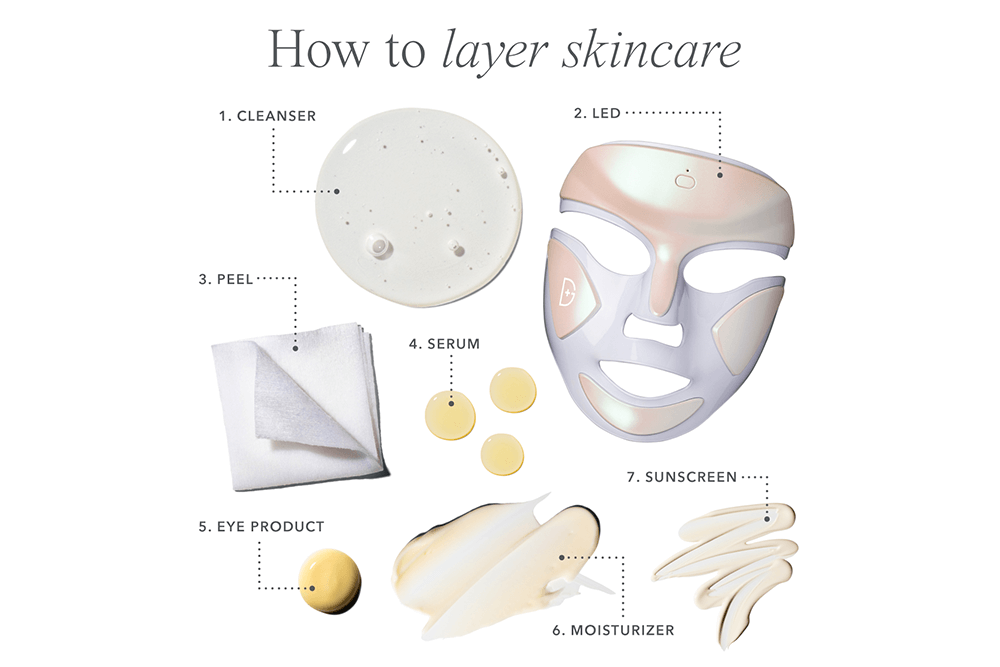
The Beauty Sleep Revolution: How Rest is Transforming Skincare
In an era where the hustle culture is prevalent, the understanding of beauty is undergoing a significant transformation. Quality sleep, once viewed merely as a necessity, is now being recognized as a vital component of overall wellness, particularly within the beauty industry. The intersection of rest and skincare has sparked a groundbreaking movement known as the beauty sleep revolution. Brands such as Estée Lauder are at the forefront of this movement, introducing innovative products designed not only to enhance skin health but also to improve sleep quality.

The Rise of Sleep-Infused Beauty Products
As consumers become increasingly aware of the link between sleep and skin health, the demand for sleep-enhancing beauty products is on the rise. Innovative solutions like overnight masks and ingestible supplements are designed to promote relaxation and rejuvenation. For instance, Ulta Beauty offers sleep gummies infused with melatonin and botanicals that assist in achieving a restful night.
This trend transcends conventional beauty; it emphasizes a holistic approach to self-care. “Beauty marketers should prioritize research and development in this area, creating innovative solutions that enhance sleep quality while promoting skin health and overall well-being,” states Corrine Maier from Kline, a market research firm that monitors trends in beauty and wellness.
A New Paradigm for Self-Care
The beauty sleep revolution signifies a shift in how we view skincare. It is no longer limited to topical applications; the focus is expanding into wellness practices that complement beauty routines. The incorporation of self-care rituals into daily life is essential, as consumers seek to enhance their well-being while improving their appearance. Sleep is curated as an integral part of this lifestyle.
Brands are developing specialized products that promise to nourish the skin while users rest. For example, Estée Lauder’s Beauty Sleep Agenda exemplifies this shift, positioning itself as part of a larger wellness revolution. This agenda provides consumers with a framework that not only suggests products but also encourages them to cultivate a nighttime routine that prioritizes rest.

The Science Behind Beauty Sleep
Research consistently underscores the connection between sleep and beauty. Quality sleep aids in the production of collagen, an essential protein for maintaining skin elasticity and reducing wrinkles. According to dermatologists, insufficient rest can lead to increased signs of aging, such as dull skin and dark circles. A survey indicates that 75% of consumers believe good sleep is essential for appearance, confirming the growing awareness of this critical link.
The beauty sleep revolution also embraces the idea that products should be multifunctional. Consumers are increasingly seeking items that serve dual purposes—enhancing beauty while promoting health. For instance, brands are introducing hybrid products that combine skin care with sleep aids, effectively marrying these two pivotal aspects of wellness.
Leading Brands and Their Innovations
Estée Lauder is not alone in this movement. Numerous brands are innovating to create products that enhance sleep quality while promoting radiant skin. R.E.M. Beauty, founded by pop sensation Ariana Grande, offers products like the Full Night's Sleep Energizing Undereye Balm that target common beauty issues associated with sleep deprivation. By positioning their offerings within the context of wellness, these brands are appealing to a consumer base that values holistic health.
Moreover, beauty giants like Ulta Beauty are expanding their inventory to include ingestible solutions that improve sleep quality. SeroVital’s Advanced Anti-Aging Dietary Supplement claims to enhance sleep quality while delivering anti-aging benefits, catering to the increasingly savvy consumer who seeks clinical efficacy in their beauty products.

The Future of Beauty and Wellness
The beauty sleep revolution is not merely a trend; it is a reimagining of how we approach self-care and wellness. As consumers increasingly embrace this paradigm, the industry must adapt to meet these evolving expectations. The concept of beauty has expanded to include emotional well-being and restorative practices, creating a more comprehensive understanding of what it means to feel beautiful.
With the introduction of sleep-enhancing beauty products, brands are positioned to cater to a growing demographic that values self-care and holistic health. The future of beauty is looking brighter than ever, encouraging consumers to invest in both their appearance and their overall well-being.

Conclusion
The beauty sleep revolution is emblematic of a broader cultural shift towards prioritizing wellness in beauty regimens. As brands innovate to create products that support both skin health and quality sleep, consumers are empowered to embrace self-care practices that enhance their lives. This transformative journey illustrates that beauty is not just skin deep; it's about nurturing oneself through rest, relaxation, and wellness.
For more insights on this emerging trend, you can explore Estée Lauder's Beauty Sleep Agenda and check out Kline's analysis of beauty and sleep.